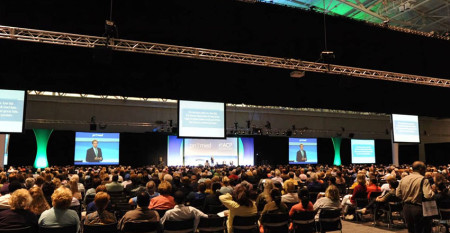Healthy activity and prolong working life.
Modern World Healthy Aging

Over the course of human history, our understanding of aging and longevity has evolved considerably. Early scientists recognized the importance of healthy habits such as exercise and proper nutrition, and researchers in the early 20th century began conducting pioneering studies on the biology of aging and the potential for interventions such as caloric restriction.
In recent years, advances in technology, materials, and medical research have led to the development of a wide range of products designed to help humans reduce fatigue on our bodies, live longer, and have healthier lives.
Nutrition, Exercise and Techology
Historically there was a natural process to being healthy. Living an OUTDOOR, physically ACTIVE lifestyle, consuming NATURAL FOODS – none processed foods! But as the population grew, and with an industrial and technological revolution, humans no lead very different lives.
Muscle Activity: Electronic muscle activation whilst we sit at our computers, running on a treadmill that monitors our heart rate. Electronic sports with screens to motivate excercise .
Nutritional supplements: Purchase specific food supplements. e.g. such as omega-3 fatty acids and vitamin D can help support overall health and prevent age-related diseases.
- Anti-aging creams and serums: Industries produce products that are designed to help reduce the appearance of aging. Many containing ingredients such as antioxidants to protect the skin from damage.
- Smart technology: Smart home technology can help us live independently by monitoring activity and alerting carers to potential problems. Tv’s with 100’s of content channels.
- Wearable Technology:
From devices that track physical activity, heart rate, and other vital signs, to electric trousers and exo skeletons that help use at work and at home.
- Assistive devices: Devices such as hearing aids, mobility aids, and home medical equipment can help maintain quality of life, continue engament in dady to day activities.
In addition to these specific products areas, there is growing interest in the potential of interventions, technological and medical products that assit with issues know to age humans. Such as gene therapy and stem cell therapy to help slow or reverse the aging process. While these approaches are still in the early stages of development, they represent a new frontiers in the field of longevity research.
Overall, the market for products and technologies designed to help humans live longer and healthier lives is growing rapidly, driven by the aging of the global population and increasing awareness of the importance of healthy habits and preventative healthcare. Just like in the pionerring early days, there are always hocus-pocus claims by snake oil businesses whos only purpose is purely commercial gain. It is important to recognize the potential of this market, to enable businesses to invest in the development of new and innovative products. To continue to meet the evolving needs of the aging consumer. Life Liberated focusses on staying at the forefront of the latest research and technological advances, helping lead the way in creating a healthier, more vibrant future for all.
There is evidence of studies and research on Healthy Living that date back well before 1930. In the early 1800s, a Scottish physician George Cheyne wrote about the benefits of exercise and healthy eating in his book “The English Malady.” Cheyne emphasized the importance of eating a balanced diet and getting regular exercise, and noted that these habits could help prevent a range of chronic diseases.
Similarly, in the late 1800s a German physician Max Rubner conducted pioneering research on the relationship between diet and metabolism. Rubner’s work helped establish the importance of proper nutrition for maintaining good health and vitality.
In the United States, the concept of physical education was introduced in schools in the early 1900s, with a focus on promoting exercise and healthy habits among young people. This movement was driven by experts such as Dudley Sargent and Luther Gulick, who believed that physical education could improve overall health and well-being.
So there is evidence that experts and researchers have recognized the benefits of these habits for centuries, so
History of longevity and reducing age
The earliest recorded scientific research on how to live longer and reduce the effects of aging can be traced back to the early 20th century, with the work of several pioneering researchers.
One notable example is Elie Metchnikoff, a Russian biologist who conducted groundbreaking research on aging in the early 1900s. Metchnikoff was interested in the idea of “immunosenescence,” or the decline of the immune system with age, and believed that this decline was a major contributor to the aging process. In his book “The Nature of Man,” published in 1903, Metchnikoff proposed the idea that the consumption of lactic acid bacteria could help slow down the aging process by promoting the growth of beneficial gut bacteria and supporting the immune system.
Another early researcher in the field of aging was Clive McCay, a nutrition researcher at Cornell University. In the 1930s, McCay conducted experiments with rats, showing that caloric restriction (reducing calorie intake without malnutrition) could extend lifespan and delay the onset of age-related diseases. McCay’s work laid the foundation for later research on the benefits of caloric restriction and intermittent fasting.
Around the same time, a group of researchers led by Charles Mayo of the Mayo Clinic in Minnesota began conducting longitudinal studies of aging and health. These studies, which began in the 1920s, followed a cohort of healthy adults over several decades and provided important insights into the factors that contribute to healthy aging.
Overall, while the scientific understanding of aging and longevity has evolved considerably since the early 20th century, these early researchers laid the groundwork for later work on the subject. Their insights and discoveries have helped shape our understanding of how to live longer and healthier lives.
Futuristic Predictions to support human health
Radical predictions for the future of human health.
- Gene editing will become a routine part of medical care: Scientists are already using CRISPR gene editing technology to correct genetic mutations that cause disease. In the future, gene editing may become a routine part of medical care, with doctors able to edit or even replace faulty genes to prevent or treat a range of conditions.
- Exoskeleton development to not only regain walking access to everyday activities, but for helping carry significant loads, accessing outdoor terrains, and extending endurance and fatigue.
- Wearable devices will monitor and predict health outcomes. Smartwatches and fitness trackers are already being used to monitor physical activity and vital signs. In the future, these devices may be able to predict and prevent health problems before they occur, by detecting early warning signs and prompting users to take action.
- Artificial intelligence will revolutionize diagnosis and treatment. AI is already being used to analyze medical images and assist with diagnoses. In the future, AI may be able to predict and prevent conditions, and assist with treatment decisions based on personalized data.
- Nutrigenomics is the study of how genes interact with nutrients in the diet. In the future, personalized dietary recommendations based on a person’s genetic makeup may become common, with doctors able to prescribe individualized diets based on an individual’s specific needs.
- Telemedicine, or the use of technology to deliver healthcare services remotely, has become increasingly popular during the COVID-19 pandemic. In the future, telemedicine may become the norm, with patients able to receive medical care and advice from anywhere in the world.
Information and White Paper
Obesity has been a concern for several decades, with the first documented evidence in the 1970s by the World Health Organization (WHO). The WHO declared obesity a global epidemic in 1997 and has been working on strategies to reduce obesity levels worldwide since then.
According to the National Health Service (NHS), the percentage of adults in the UK who were obese increased from 15% in 1993 to 28% in 2018.
This represents a percentage increase of 86.7% over the last 25 years.
Obesity is a major public health concern that is associated with several health problems, including type 2 diabetes, cardiovascular disease, and some cancers. The increase in obesity levels in the UK and globally is a cause for concern and requires urgent action to tackle the issue.
Based on current trends, it is predicted that obesity levels will continue to rise globally in the next ten years. This is due to a combination of factors, including changes in diet, lack of physical activity, and environmental factors such as urbanization.
However, there are several strategies that can be implemented to reduce obesity levels, such as promoting healthy eating and physical activity, improving food labeling, and creating healthier environments. These strategies need to be implemented at the national and global levels to have a significant impact on reducing obesity levels.
Key Team Members


Senior Partner
Import / Export
Management


Partner
Podiatry Profession
Sales Consultant


Partner
Occupational therapist
Psychotherapist


Partner
Sales & Marketing


Partner
Lifestyles Manager
Register, and keep updated
Keep up to date with Health Programs in your area.
See the latest innovative products and services to help liberate your life.
Events
Educational events to enable understating of issues and opportunities.
17
Life Curve - Social Care Integration
Book on EventBrite
18
THE USE OF TECHNOLOGY IN HEALTH AND SOCIAL CARE
Morning of Health & Wellbeing workshops at the Stoke Town Hall.
Book on EventBrite
31
Introduction to Ways to Wellbeing Workshop Webinar
Delivered by the Ageing Curve team for the Stoke Digital Innovation and Education Hub over the next 4 months both online and face to face in the Stoke area.
Book on EventBrite
28
Diabetic Foot Education Webinar (Stoke on Trent)
This workshop delivered by Podiatrist and Trainer Gareth Hicks is designed to fit in with our range of Physical and Mental Health & Wellbeing Sessions with a focus on Healthy Ageing.
Book on EventBrite
31
Physical Health & Wellbeing Webinar (Stoke on Trent)
This workshop delivered by Professional Fitness Coach and Trainer Owain Fraser-Williams is designed to fit in with our range of Physical and Mental Health & Wellbeing Sessions with a focus on Healthy Ageing.
Book on EventBrite
28
Mental Health & Wellbeing Webinar (Stoke on Trent)
This workshop delivered by specialist therapist Tracey Cole. The webinar is designed to fit in with our range of Physical and Mental Health & Wellbeing Sessions with a focus on Healthy Ageing.
Book on EventBrite
28
Diabetic Foot Education Webinar (Stoke on Trent)
This workshop delivered by Podiatrist and Trainer Gareth Hicks is designed to fit in with our range of Physical and Mental Health & Wellbeing Sessions with a focus on Healthy Ageing.
Book on EventBrite
Latest News
Health Care news all over the world.















